The following fact sheets are published as Information Circulars and provide information about geologic hazards, DGGS programs, and general geoscience information. Find a list of all Information Circulars here.

Learn about DGGS' Renewable Hydropower Program and the program's benefits and objectives. See citation details.
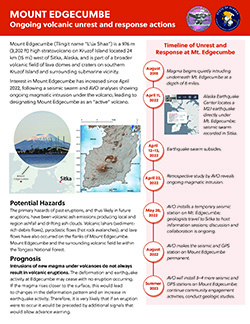
Learn about the recent volcanic unrest on Mount Edgecumbe and potential hazards. See citation details.
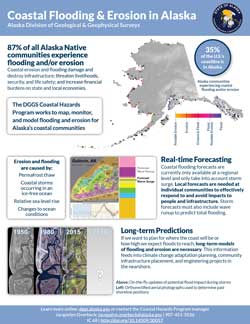
35% of the U.S. coastline is in Alaska. Learn about the challenges these communities face and DGGS' data collection and mapping efforts. See citation details.
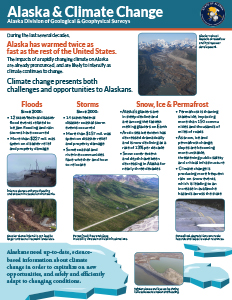
Climate change presents challenges and opportunities in Alaska. See citation details.
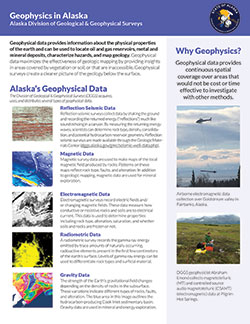
This data helps reveal the physical properties of the earth and is used in several applications. See citation details.
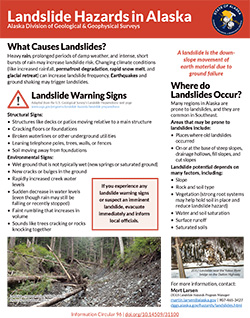
Learn about warning signs of landslides, causes, and what to do during and after a landslide. See citation details.

Learn about historical landslides and the risks associated with living in landslide-prone area. See citation details.
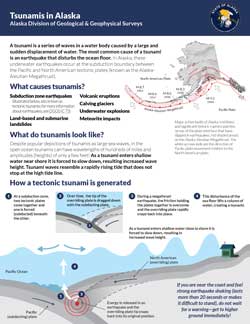
Learn about the basics of tsunamis and how DGGS maps tsunami hazards in Alaska. See citation details.
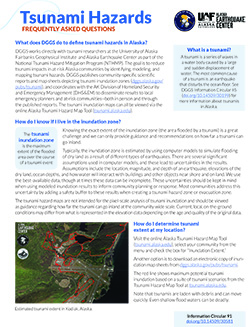
Answers to common questions about tsunamis in Alaska. See citation details.
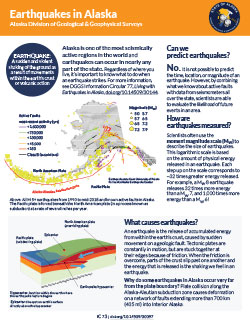
Alaska is one of the most seismically active regions in the world. Learn about what causes them, how to prepare, and what to do during and after an event. See citation details.
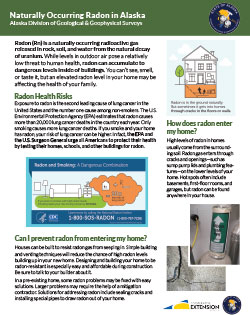
Learn about the risks of this colorless, odorless gas, and how to test for it in your home. See citation details.
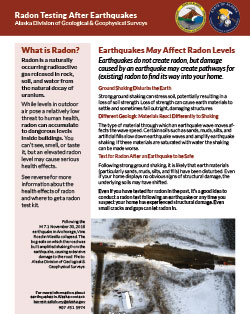
Earthquakes may disturb materials around your home's foundation, creating new pathways for this odorless, colorless gas to enter your home. Learn why it's a good idea to test for radon following an earthquake. See citation details.
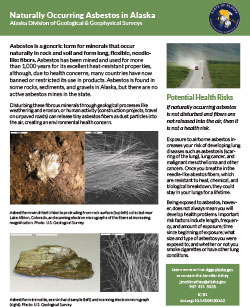
Learn about what it is, where it's found, and how to reduce your exposure to asbestos in Alaska. See citation details.
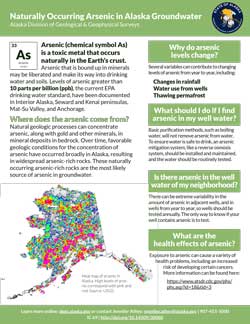
What is arsenic, where does it come from, and how can you test for it? See citation details.
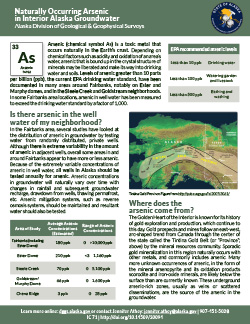
Specific information about arsenic in interior Alaska. See citation details.
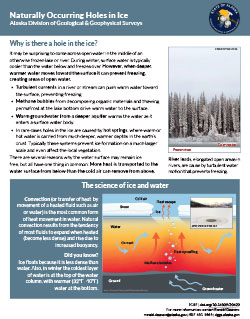
Learn about the science behind naturally occurring holes in the ice. See citation details.
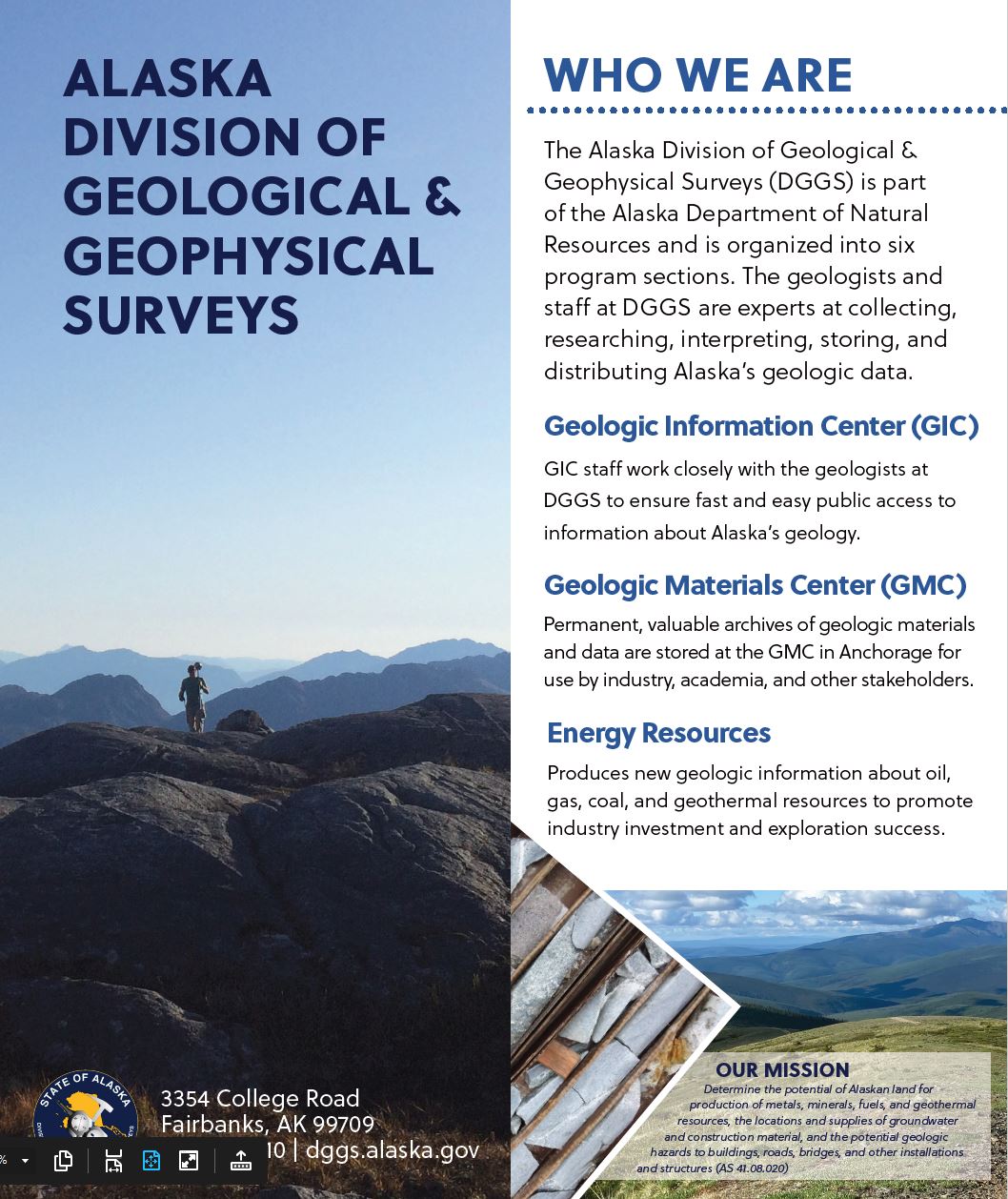
DGGS is part of the Alaska Department of Natural Resources and is organized into six program sections. The geologists and staff at DGGS are experts at collecting, researching, interpreting, storing, and distributing Alaska's geologic data. See citation details.